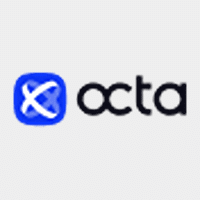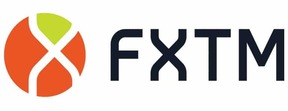The trading of foreign currency pairs, once the province of just global banks, corporations, and a few wealthy investors, has evolved and grown enormously in popularity since the nineties. After a few clever brokers combined their market buys to offer smaller lots and technology produced the internet and efficient trading platform software, retail forex trading spread across the globe far and wide.
Developed countries were the initial markets that opened up to retail customers. Still, over the last 20 years, citizens in developing economies have also entered the forex trading arena, including residents from South Africa. Current surveys have revealed that more than 200,000 active online forex traders exist in the Republic of South Africa, and a wave of newcomers jumped on board when the Covid-19 pandemic forced many people to stay at home.
For those individuals who were not confident in trading currency pairs in the traditional way, the market has created innovative alternatives, whether it be options on futures exchanges, investing your money in a fund managed by forex experts, or selecting your expert from a broker offering what is called copy or mirror trading. Another alternative has gained considerable popularity in the last decade – Contracts for Difference (CFDs).
A CFD is a financial derivative and is a contract between you and your broker. It speculates the direction prices might take on your chosen asset. Assets can be currency pairs, stocks, indices, commodities, and even cryptocurrencies, but the derivative nature of the instrument is that you will never have to purchase the underlying asset. CFDs are also leveraged instruments in that the use of margin can multiply the size of your position in the market.
Leverage, however, is a sword that can cut both ways – it can magnify gains and amplify losses. As a result, many regulators are concerned about the high rate of casualty losses from trading CFDs among consumers. The European Securities and Markets Authority (ESMA) has restricted the use of aggressive marketing tactics to acquire new customers. The Financial Conduct Authority (FCA) in the UK currently bans CFD trading for online retail clients, and regulators in the United States forbid any trading of CFDs whatsoever.
Regulators in major market countries now require licensed CFD brokers to post a risk disclaimer on their website revealing the percentage of traders that lose when trading with CFDs. The range of loss rates published can vary from 55% to 80% and higher, based on a random survey of industry risk disclaimers. Traditional forex trading is roughly equivalent, ranging anywhere from 70% to even more than 90%, but these figures may take six months or more to develop.
Why are these casualty rates so high? Forex trading is not easy. It requires months of preparation and practice. You must be a disciplined trader with a plan and be patient enough to choose the best opportunities available. Newcomers lose by being unprepared and impatient, often allowing their emotions to guide their decision-making. Forex trading can be profitable with CFDs and traditional trading methods, but you must treat it as a business and be disciplined.
To succeed when trading CFDs and to thrive in this exciting trading medium, we are here to help educate and guide you in achieving those objectives. In the following few paragraphs, you will learn why it is a good thing to trade CFDs in South Africa, How to Start CFD Trading in South Africa, who regulates forex trading in South Africa, and, lastly, how a CFD trader in South Africa gets started via a step-by-step guide. We hope to cover what a beginner needs to know to get started.
Related Articles
- How to Start Forex Trading in South Africa
- The Best Time to Trade Forex in South Africa
- Is Forex Trading Legal in South Africa
- The Best Forex Brokers in South Africa
Why trade CFDs in South Africa
Brokers across the globe have been gradually shifting to CFD offerings due to their inherent advantages for both the trader and the broker. Since the trader need not put-up capital for the total cost of the underlying asset, CFDs have an immediate appeal, i.e., low cost of entry. Speculation is on price movements alone. CFD forex brokers also tend to offer other asset categories like stocks, commodities, metals, indices, and currency pairs. You can quickly shift gears when other markets are offering the right opportunities.
As long as you understand the risks when trading with leverage, you can make money trading forex CFDs. Leverage expands the size of your position in the market, and it can magnify your gains, but it can also magnify losses. Another benefit is that you can easily short a currency or stock without the rules requiring direct ownership. This fact is particularly beneficial when trying to short a cryptocurrency like Bitcoin. Most crypto exchanges do not allow short selling. If you are a day trader, you will not encounter broker restrictions with CFDs, nor will the transaction costs be high. Typically, buying and selling will only involve a spread cost at both ends.
Who regulates CFD trading in South Africa?
In South Africa, the Financial Sector Conduct Authority (FSCA) has oversight responsibility for trading foreign exchange within South Africa. Trading forex and CFDs is legal in South Africa. The FSCA has made it clear that trading with a licensed broker is preferred, but residents of this nation may trade with any broker that will accept citizens from South Africa. Learning how to start CFD trading in South Africa begins with selecting a broker most suited to your interests.
There is one unique restriction that the FSCA has also made clear. Traders may not short the local currency, the South African Rand (ZAR). Banks in South Africa have also made it much easier to fund forex trading accounts in recent years. Currency restrictions apply to substantial sums, but you should not encounter any issues if your deposit is less than one million rands, roughly $65,000. All recorded net gains from forex trading are also reportable as income on annual tax returns.
A step-by-step guide how to start CFD trading in South Africa
How does starting CFD trading in South Africa work? A cursory review of the many forex brokers that market their services to South Africans revealed that most offer CFDs as the preferred mode of trading. The following steps will help you get started:
- Choose a Broker: Your preparation work will include how to choose a broker based on your trading style, fees, regulatory oversight, and a host of other considerations. We, however, have made it easy for you. We have reviewed many of them and have lists of the most reputable and trustworthy for you to consider. Most of these will allow you to sign up and access a free demo system to get acquainted with trading CFDs on their platform. Take this time to practice and develop a step-by-step trading strategy.
| Broker | Features | Regulator | Platforms | Next Step | |
|---|---|---|---|---|---|
 Your capital is at risk
Founded: 2011 Your capital is at risk
Founded: 2011 |
|
CySEC, FSC, FSCA, MISA | MT4, MT5, OctaTrader | ||
 Your capital is at risk
Founded: 2006 Your capital is at risk
Founded: 2006Europe* CFDs ar... |
|
ASIC, FSA, FSB, MiFID | MetaTrader4, Sirix, AvaOptions, AvaTrader, Mirror Trader | ||
 Between 74-89% of CFD traders lose
Founded: 2010 Between 74-89% of CFD traders lose
Founded: 2010Between 74-89 % of retail investor accounts lose money when trading CFDs |
|
ASIC, FCA | MetaTrader 4, MetaTrader 5, cTrader | ||
 Your capital is at risk
Founded: 2014 Your capital is at risk
Founded: 2014 |
|
FSPR | MT4 | ||
 Your capital is at risk
Founded: 2011 Your capital is at risk
Founded: 2011 |
** ForexTime Does NOT accept Traders from US |
CMA, FCA, FSC, FSCA | MT4 & MT5 for PC, Mac, iPhone/ iPad, Android. FXTM WebTrader (MT4) | ||
 Your capital is at risk
Founded: 2009, 2015, 2017 Your capital is at risk
Founded: 2009, 2015, 2017 |
|
ASIC, CySEC, IFSC | MT4 Terminal, MT4 for Mac, Web Trader, iPhone/iPad Trader, Droid Trader, Mobile Trader, MT5 | ||
|
|
|
FSCA | MT4, MT5, ProTrader, AppTrader, CopyTrader | ||
 Your capital is at risk
Founded: 2006 Your capital is at risk
Founded: 2006 |
|
CySEC, DFSA, FCA, FSB, SIA | MetaTrader4, MetaTrader5, cTrader, FxPro Edge (Beta) | ||
- Open & Fund an Account: Brokers will typically require no deposit to open an account and gain free access to their demo system. Their website will prominently display “Start Here” buttons to initiate the process. Do not be alarmed when the broker asks for personal identity information. All brokers are required to obtain this documentation by international law. Approval can be quick or take a day or two if there is an issue. The broker will also offer a selection of methods to fund your account. Check with your local bank to determine the best payment offering for your needs.
- Make Your First Trade: Are you ready to trade? Not quite – You need to practice trade and become adept at using the broker’s trading platform to execute trade and risk protection orders. More importantly, you will want to test a simple trading strategy, which will involve using charts and technical indicators. Using a combination of a 20 and a 50-period moving average and when they cross is one easy strategy to employ. Start with small trading positions and build from there when you feel ready to help you develop your forex trading strategies.
- Manage Your Risk: Be sure to use wise risk management There are ways to protect against downside risk and margin calls. There are also rules for determining the most appropriate position sizes, how to limit your losses, and how to use trailing stops to lock in your profits.
- Enjoy Your Profits: Your goal is to have a net positive gain after deducting your losses consistently over time. Keep track of your trades in a journal. Review what went right and what went wrong. Enjoy the process and enjoy your profits!
Conclusion
It is easy and legal to start trading CFDs in South Africa. To succeed, however, preparation and practice are essential. Approach the market with a step-by-step trading strategy and be patient. There is an abundance of trading opportunities on any given day, but you want to be patient enough to choose the ones with the most significant potential based on your trading style and strategy.
We are here to help you choose the best forex broker for your trading adventure, one that is both secure and worthy of your trust. Forex trading is not easy, but if you practice, protect against downside risk, and stick to your disciplined plan, you too may become a veteran forex trader.
Forextraders' Broker of the Month
BlackBull Markets is a reliable and well-respected trading platform that provides its customers with high-quality access to a wide range of asset groups. The broker is headquartered in New Zealand which explains why it has flown under the radar for a few years but it is a great broker that is now building a global following. The BlackBull Markets site is intuitive and easy to use, making it an ideal choice for beginners.

